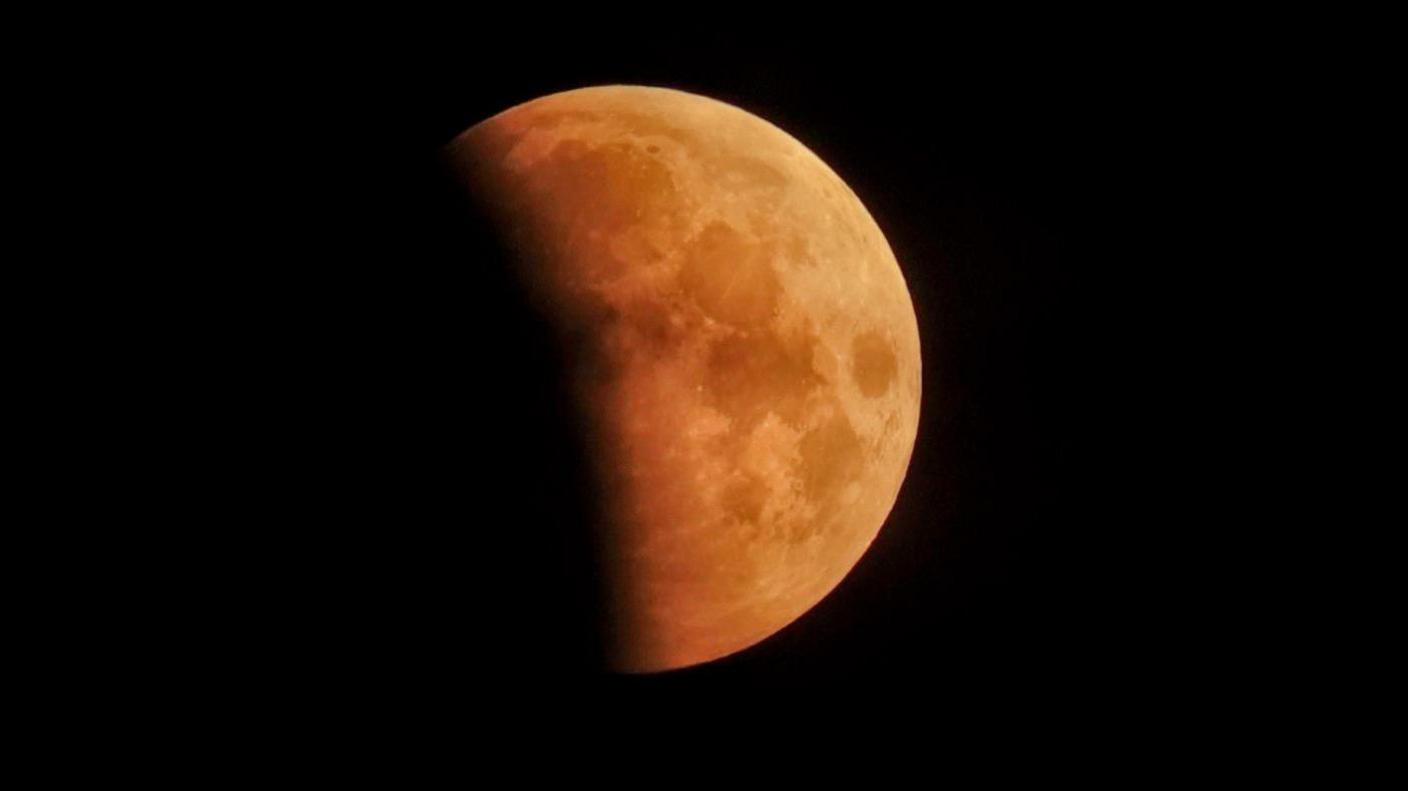Chance for national park visitors to see the stars
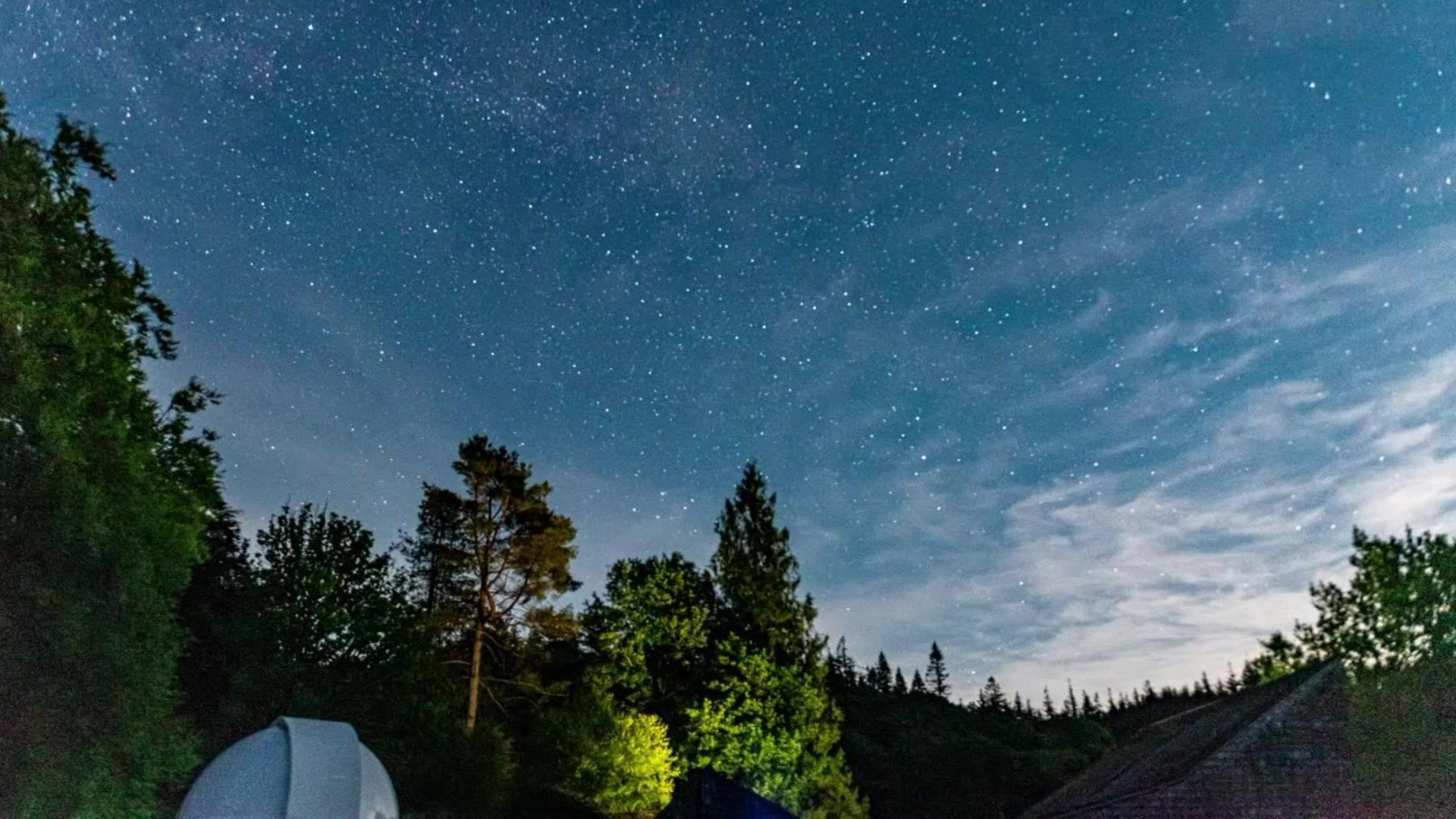
Grizedale Observatory is the first planetarium to open in the Lake District National Park
- Published
A new planetarium and observatory has opened in a national park to offer people the chance to explore the Universe.
Grizedale Observatory is the first planetarium to open in the Lake District National Park and has been built in the hope of making Cumbria a destination for stargazers.
It follows on the success of similar observatories in Kielder in Northumberland, the Yorkshire Dales and the North Yorkshire Moors.
Director Gary Fildes has worked in astronomy outreach centres for years and said it was exciting to be involved in opening the Lake District's first observatory.
"I was a founder of Kielder Observatory and worked there for many years, and the Grassholme Observatory in Teesdale," he said.
"It is really exciting to be opening this beautiful venture here in Grizedale in the heart of the Lake District."
Mr Fildes said the observatory's equipment was powerful enough to take a picture of the Andromeda galaxy, which is our closest neighbouring galaxy.
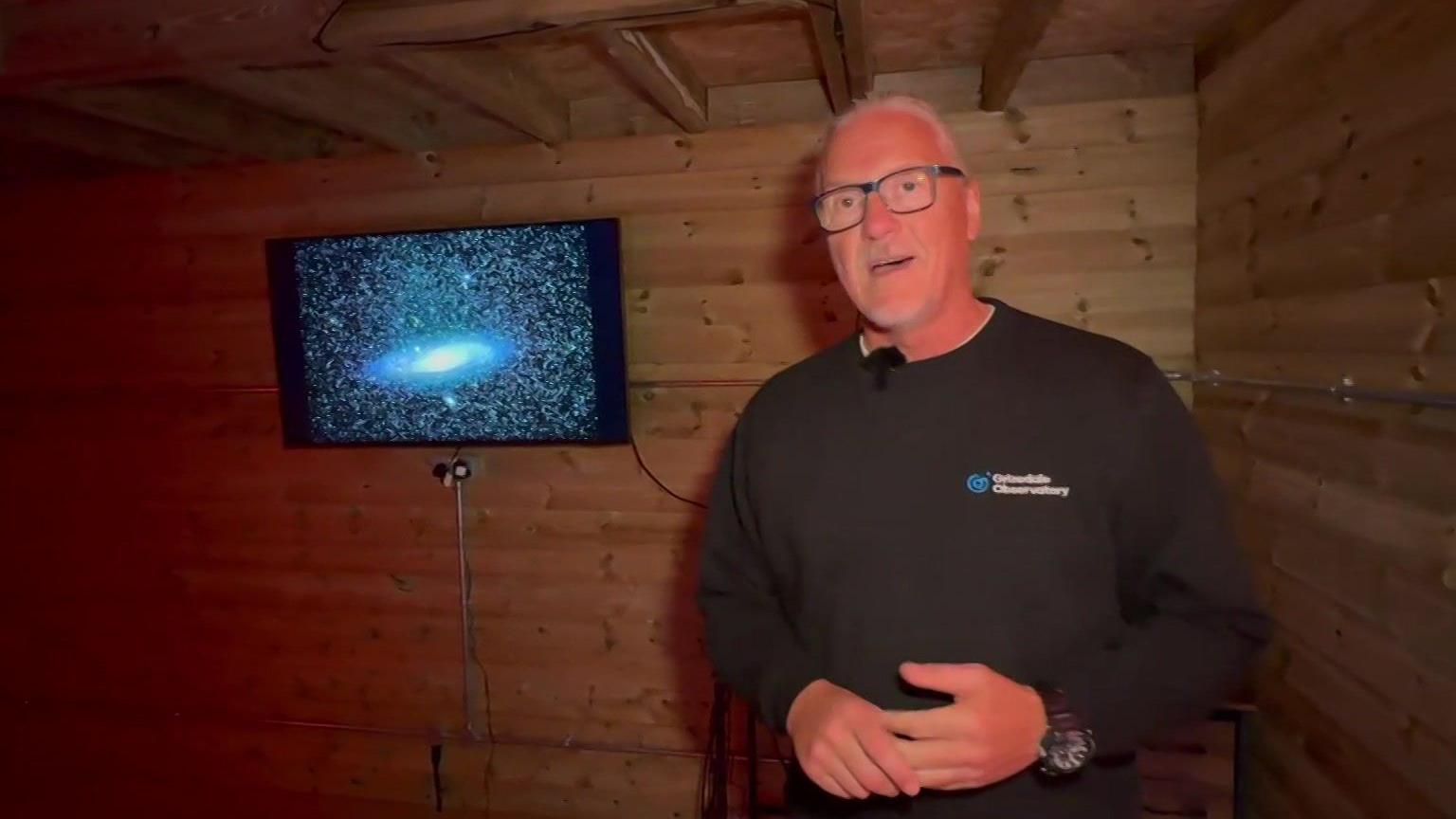
Gary Fildes said the observatory was capable of taking a picture of the Andromeda galaxy
The facility has been opened in partnership with Forestry England and its planetarium can cater for up to 20 people at a time.
Those wishing to stargaze at the site are able to use its fleet of 8in (20cm) Dobsonian telescopes and its two 16in (40cm) large aperture telescopes.
It also has a fully robotic telescope housed in a custom-built dome. The larger telescope is connected to TV screens which can be used to display the images.
Grizedale Observatory's Ben Marshall said the facility also contained an indoor education site, which includes its meteorite room.
"We've spent a bit of money and collected a load of meteorites that have fallen to Earth," he said.
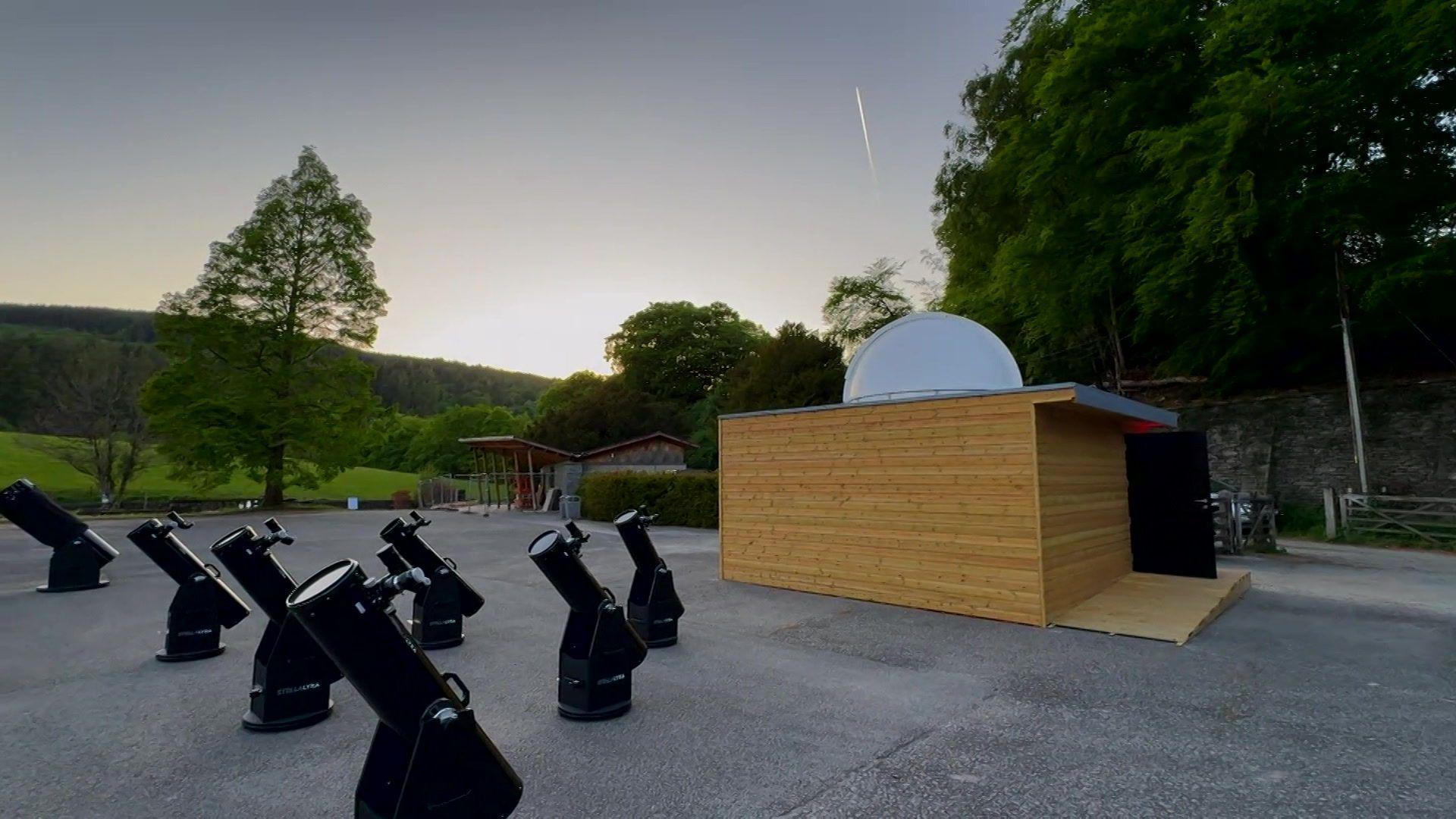
Stargazers can make use of the observatory's fleet of telescopes
One of the collection's prize pieces is its lunar meteorite - which is an actual piece of the moon.
It was created when something hit the moon hard enough to eject part of it, said Mr Marshall.
"It's then flown across space, got into our gravity and landed on Earth."
Follow BBC Cumbria on X, external, Facebook, external, Nextdoor and Instagram, external.
Get in touch
Do you have a story suggestion for BBC Cumbria?
More stories
- Published4 May
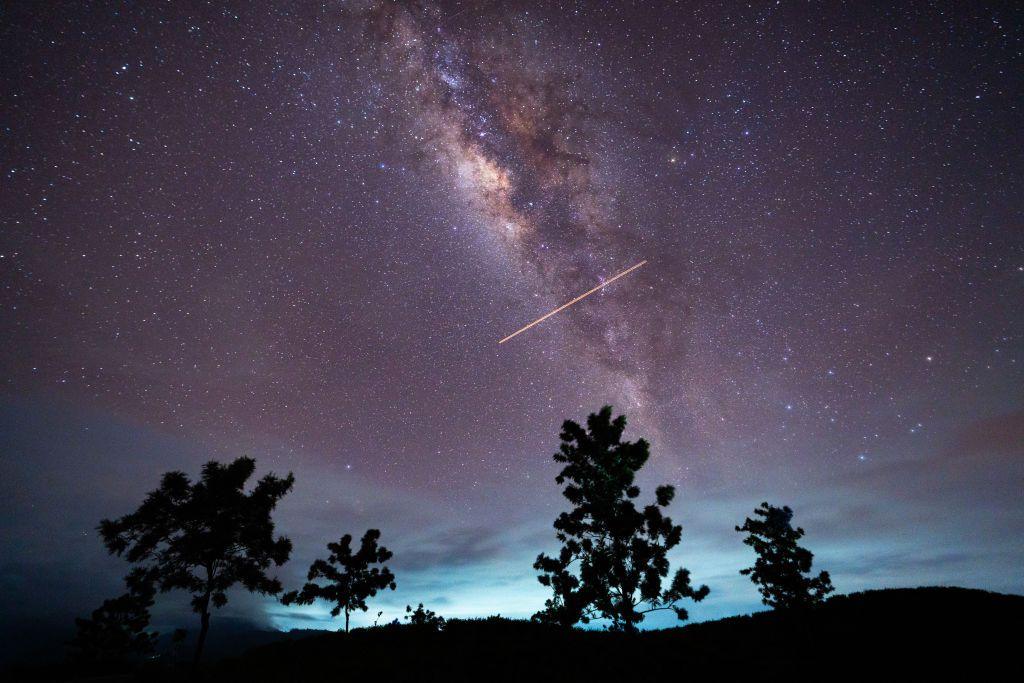
- Published25 March
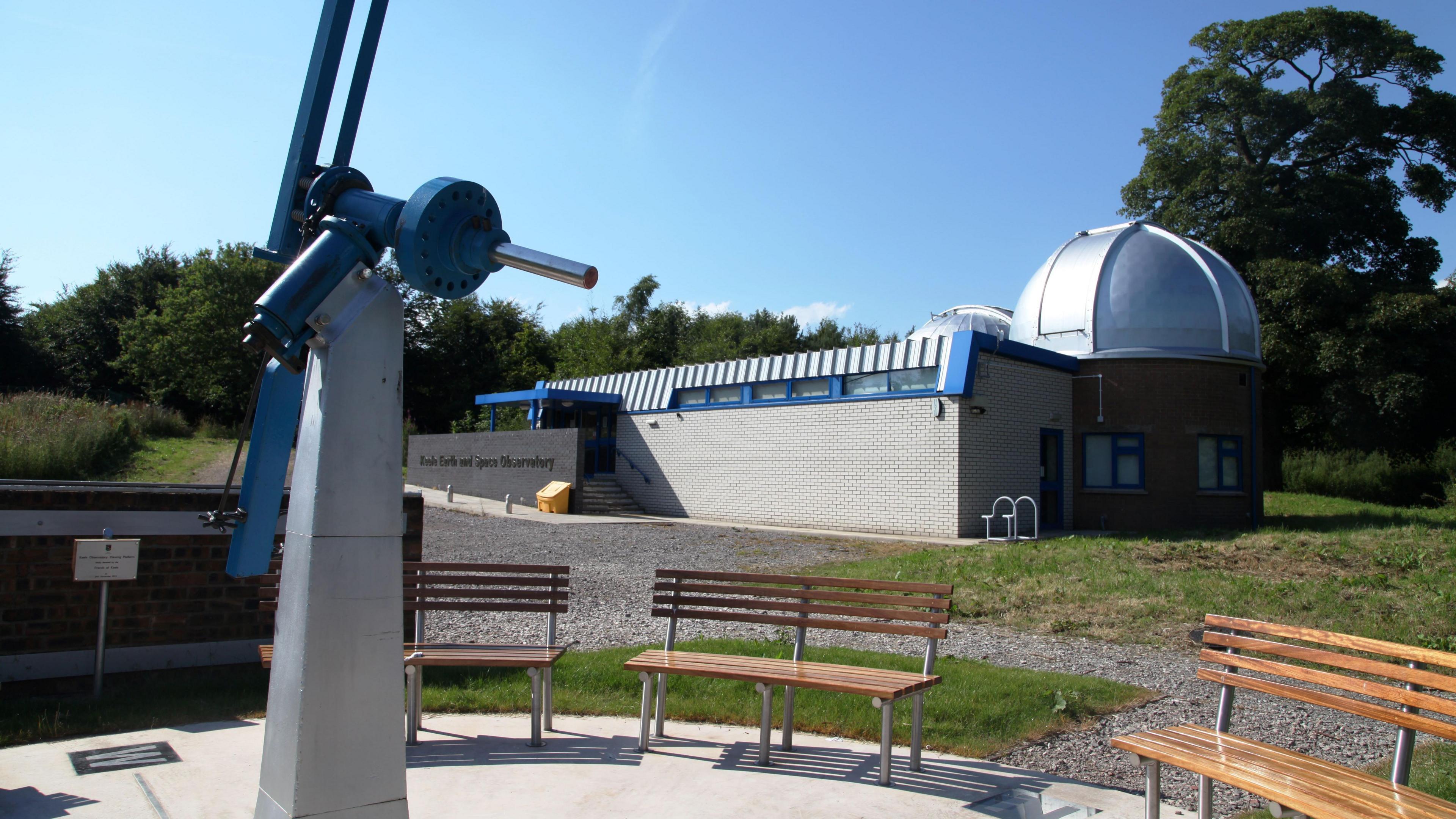
- Published14 March
